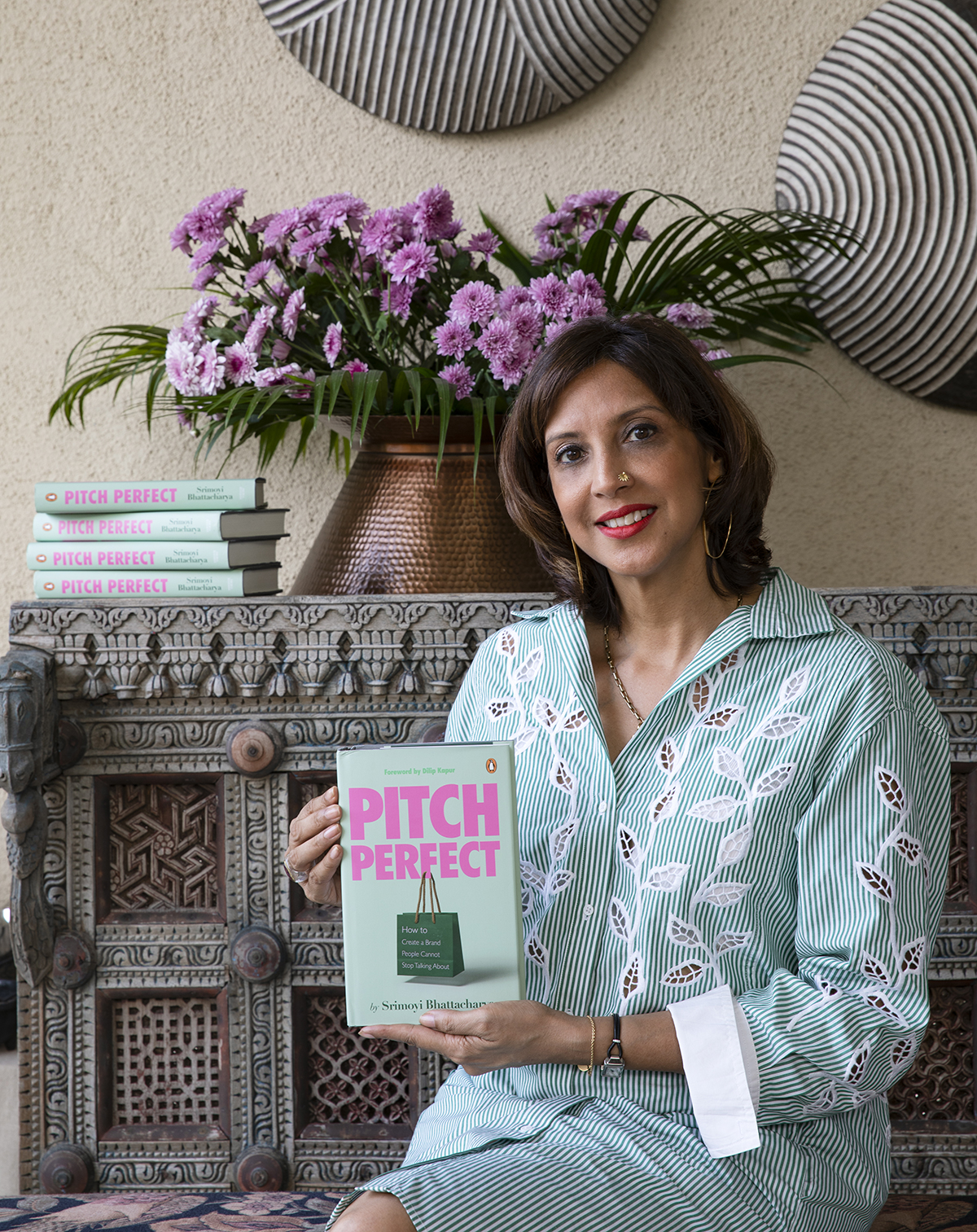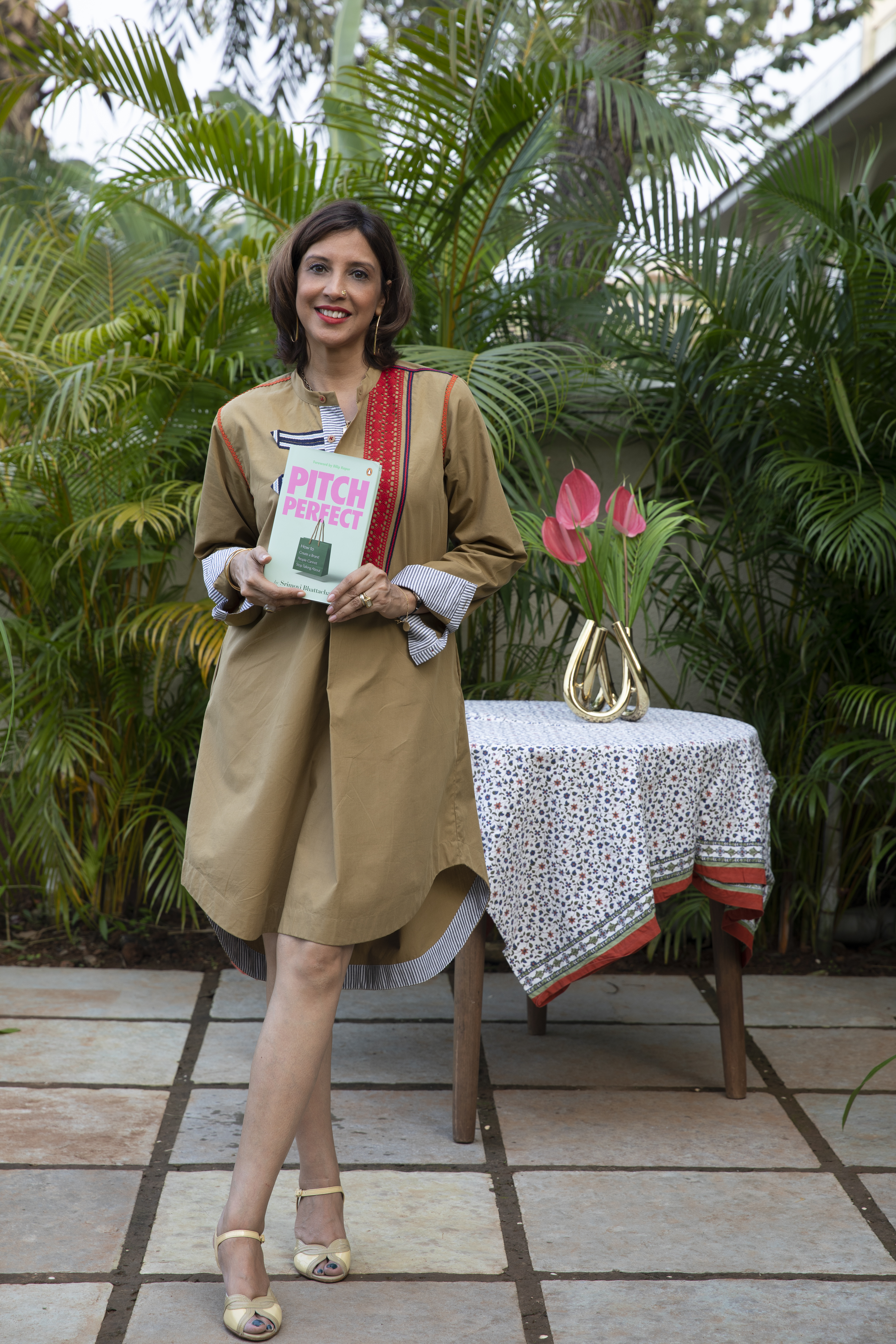
Srimoyi Bhattacharya: author & founder of Peepul. Photo credit:Rushika Radhakrishna Tyabji.
Public relations teaches you to gravitate towards people who are dissimilar to you and create a space in which you both can have a constructive conversation
New York (also) pushed my professional buttons in a completely different way — it is an assertive, confident city and you have to learn to network seamlessly. My employers were fantastic at building and growing connections across the board and I had to learn — fast — to get over my inherent shyness and catch up with them.
As the head of communications at a company that was built by self-made immigrants, I was occupying a unique space at the time and perhaps the enormity of it was only made clear to me in hindsight. I had to use my voice with conviction, and be very open-minded but also face opposition and disagreement in a healthy way. The thing about public relations as a career is that it does not demand a specific academic qualification, but what it does require of you is to string all your personal and professional experiences together, and adapt them to every situation. It teaches you to gravitate towards people who are not like you, and create a space in which you both can have a constructive conversation.
Working with the family was a lesson in building relationships and a successful business in a pre-digital era. They were masterful in the way they cultivated a network strategically. Social media and digital connectivity has made it relatively easy to make friends and influence people, as it were. The world is also more diverse now, though far from what it should be. At that time, my employers and myself were often the only people of colour at a benefit or fundraiser, and my boss was usually the host — I cannot emphasise how unusual this was, and how hard he had worked to get there.
Above all else, though, what I learnt from the company culture was to truly love what you do. Not in the Pinterest-image manner, but in a deeper, more meaningful way. I realised that I had to stay passionately interested in my professional life and committed to letting it and myself evolve. I could say that working in New York was a dream come true and leave it at that because in many ways, it was. The people I represented loved publicity, visibility and coverage. I had the privilege of managing several agencies, and meeting journalists and tastemakers on both coasts of the US, from England and from India. I suppose these days, I could sum all this up as #blessed, but there was also a #hustle aspect to it, which caught up with me eventually. Weekends blurred into weekdays and I was always on call, 24/7. Because the scope of my work, and what my clients dabbled in was so vast, I began to feel a little bit like I was on a carousel that did not stop. A job is a job, at the end of the day, and there will always be challenges to it and days you really don’t want to have anything to do with it. And it must never replace or completely swallow up your personal life, which is why boundaries are important.
And as much as I loved the fact that I now had an incredible depth of knowledge about the hospitality industry, and to some extent, public affairs, I began to itch for independence and the freedom to work on my own.
I feel like the entrepreneurial bug was in the air in New York at that point in time, and I caught it. Here, I have to add that I had moved to the US not with the American dream in mind, but with the Indian dream in mind. As much as I wanted to be in New York, doing what I did, my goal had always been to work with Indian brands and, eventually, be in India. My desire to connect more deeply with India intersected perfectly with the white space I identified in the large Indian diaspora market — there were huge numbers of Indian and Indian-origin people who were served by focused publications and TV channels. This diaspora was very influential in terms of politics and as consumers, but there was a gap to be filled by a public relations agency that acted as a bridge between all the stakeholders.
The idea grew into Peepul PR, which I started with two friends in April 2006. I made the decision to do this with partners as I was lucky to connect with like-minded professionals who had an adventurous bug, like me. Some people work better on their own from the start but I needed a sounding board, and an ally as I set off on a really daunting journey with my own company. And then there’s also the matter of renting a space or working from home — we were very prudent with how we structured the business right at the start. We set up a small office off 9th and Broadway, and decided to pay ourselves salaries, but kept them small so the pressure was off a little bit.
I also made a personal decision which I have never regretted and it taught me something I still value — I decided to take a bank loan to give myself a little cushion as I quit a very covetable job. At this point in my career, I had not put away enough savings, and I did not want to waste time or energy on regret and fear. Taking a loan was my way of investing in myself, and it gave me a true sense of security — I did not have to sacrifice too much, and could focus on the work we had ahead of us. This is a piece of advice I still give anyone who will listen to me. Don’t ever start a new venture with anxiety about money. As long as you are being prudent, borrowing some funds from family or a bank will act as a solid bridge to your future.
People’s advice on every aspect of starting a business will vary. I can only share what worked for me. Whether you should do this by yourself or with one or more partners; renting an office space versus working from home; how much to invest back in the business versus what you pay yourself — each one of these is a valid concern. As for me, I knew that I wanted to take care of myself first. It’s like the emergency statement on a flight, put on that oxygen mask on yourself first before you can help others. If I was not feeling secure and confident in my future, I could not possibly have done my best work.
What is not subjective, though, is the fact that you have to spend time getting to know the industry you are launching in.
More from The Byword
Comments
*Comments will be moderated












